New images of Titanic wreck show doomed ship’s anchor and chain
The clearest ever footage of the Titanic shows the ill-fated cruise ship’s massive 15-tonne anchor on the ocean floor where it settled 110 years ago after hitting an iceberg on its maiden voyage
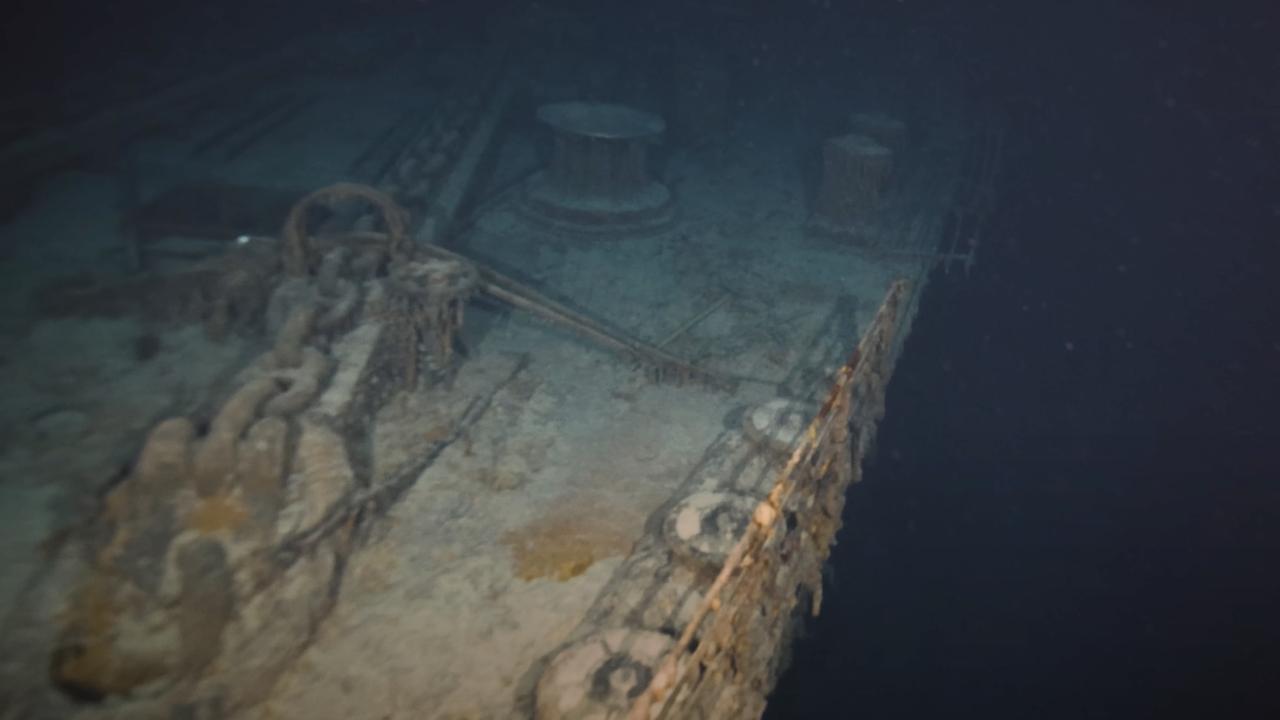
READING LEVEL: ORANGE
The clearest ever footage of the wreck of the Titanic shows the doomed ship’s massive 15-tonne anchor sitting on the ocean floor.
The amazing images were taken 380m below the surface and also show its boiler, which went to the bottom when the liner split in half after sinking on its maiden* voyage in 1912.
OceanGate Expeditions last week shared a clip of their footage from the Titanic, shot in 8000-pixel* resolution* which allows zooming without losing image quality.
The one-minute reel shows a close-up of the 110-year-old ship’s bow, portside* anchor, and anchor chain, among other parts of the wreck.
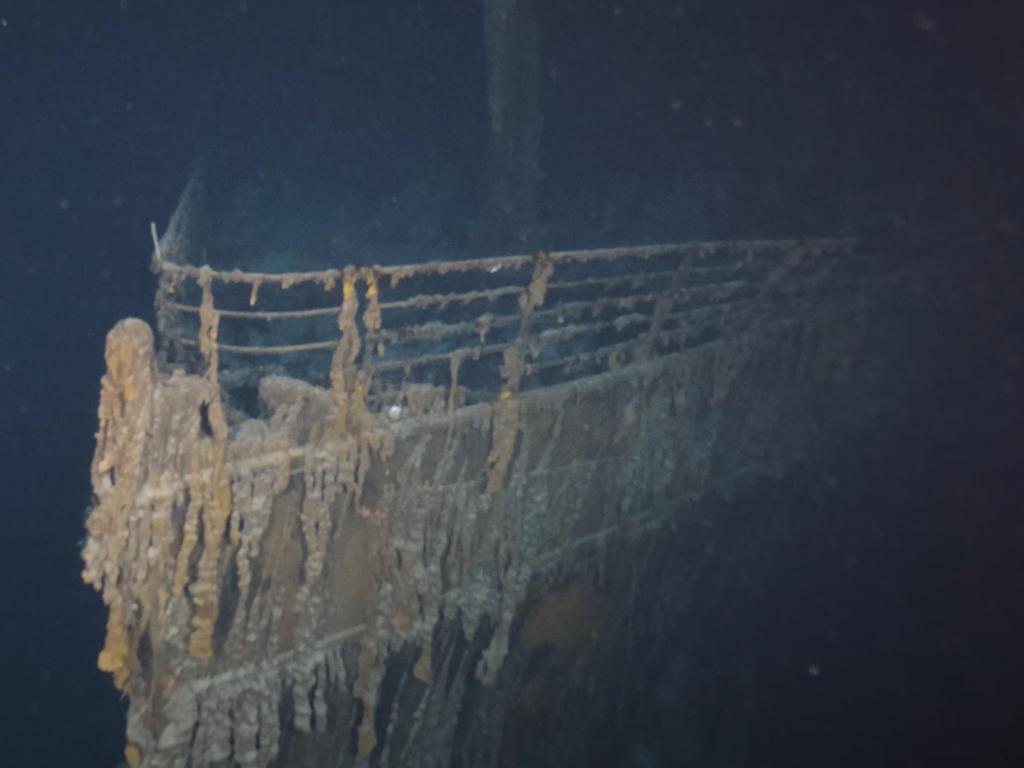
“We are seeing new details in this footage,” OceanGate diver Rory Golden told tech news site GeekWire.
“For example, I had never seen the name of the anchor maker, Noah Hingley & Sons Ltd., on the portside anchor.
“I’ve been studying the wreck for decades and have completed multiple dives, and I can’t recall seeing any other image showing this level of detail.
“It is exciting that, after so many years, we may have discovered a new detail that wasn’t as obvious with previous generations of camera technologies.”
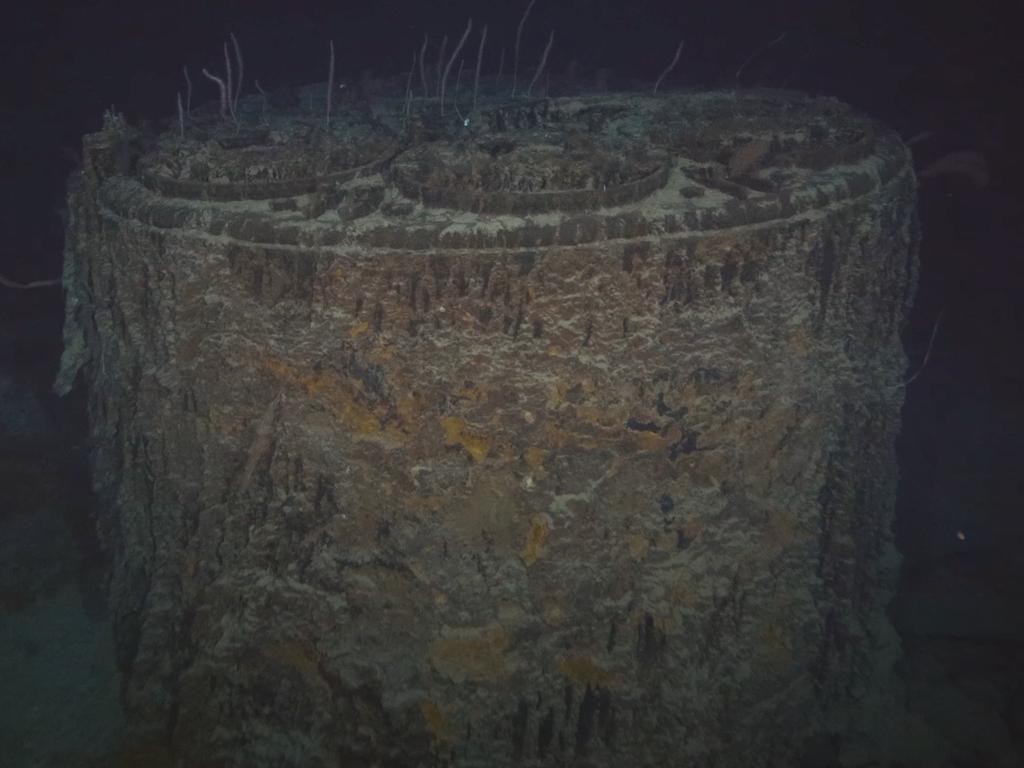
The enormous anchor is still located on the deck of the shipwreck, along with the shackle*, which was originally attached to the main mast that has now collapsed.
The vessel’s solid bronze capstans*, hull and cargo hold can also be seen.
OceanGate Expeditions’ five-man submersible* transported archaeologists* and paying customers to the wreck to take the footage.
Three customers – dubbed mission specialists – paid just over $363,000 for a seat on the submersible.
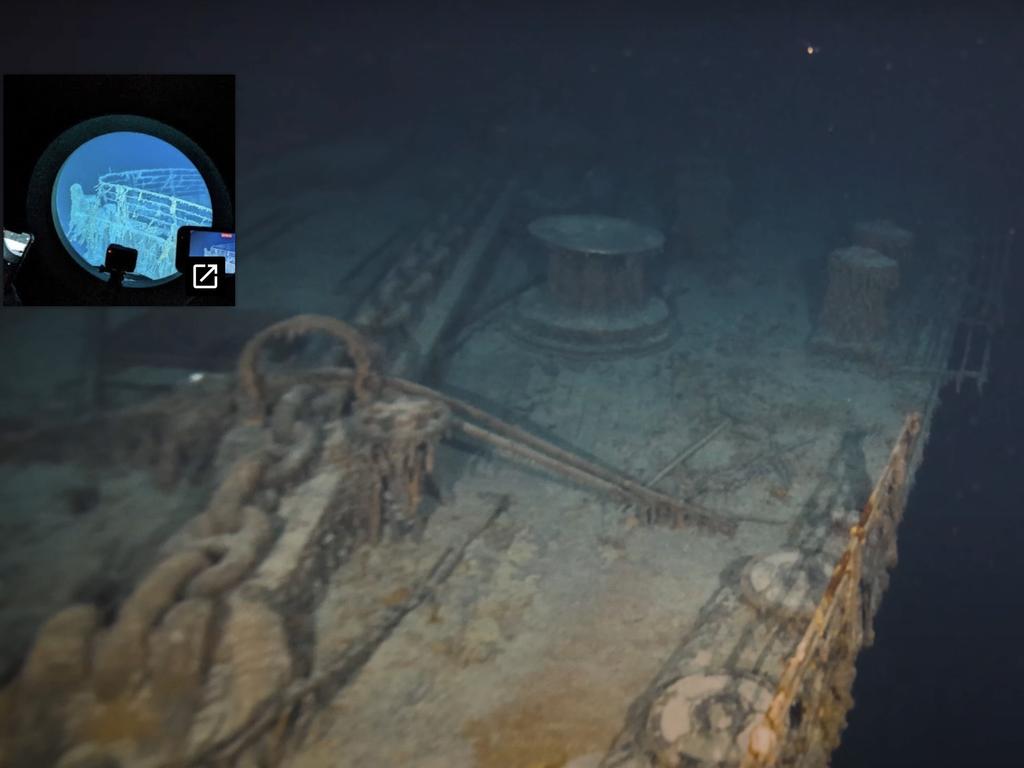
OceanGate Expeditions president Stockton Rush said the new video technology used to capture the latest images would also help maritime archaeologists and scientists monitor the decay of the Titanic more precisely.
“Capturing this 8K footage will allow us to zoom in and still have 4K quality, which is key for large screen and immersive video projects,” Mr Rush said.
He also said the colours in the 8K video footage were “phenomenal”.
The OceanGate team will now expertly review the 8K and 4K footage before planning another expedition.
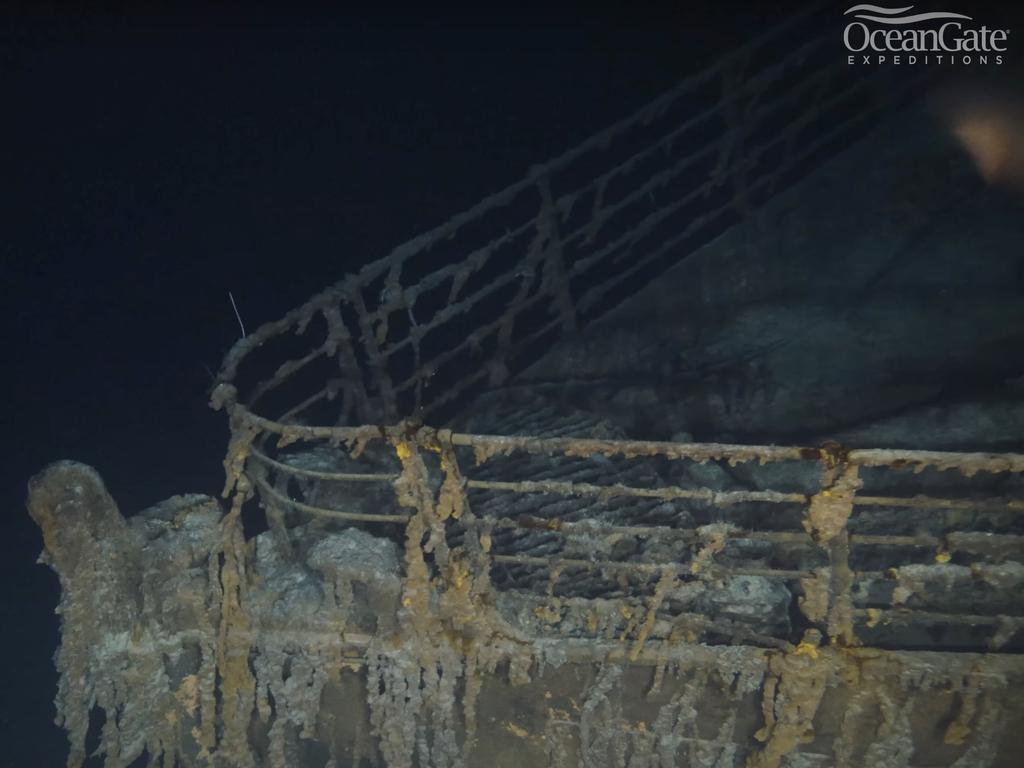
Trips to the wreck, including filmmaker James Cameron’s famous dive in 2001, are controversial*, despite the interest in the Titanic.
Some experts believe salvage* missions and other expeditions over the decades have weakened the integrity* of the hull, while landing of craft on the wreck has caused substantial deterioration to the promenade* deck.
The National Oceanic and Atmospheric Administration in the US warns the hull and structure of the ship is likely to collapse within the next 40 years.

The RMS Titanic was built by the Harland and Wolff shipyard in Belfast and was the largest passenger ship the world had ever seen.
It set off on its maiden voyage from the English city of Southampton on April 10, 1912, and was due to arrive in New York City in the US on April 17.
But five days into the journey, it collided with an iceberg in the North Atlantic Ocean with about 2224 passengers and crew on board.
Six of the watertight compartments at the front of the ship’s hull were breached*, five of them flooding within an hour.

Musicians played for two hours and five minutes as the ship sank and people were loaded on to lifeboats. However, Titanic had just 20 lifeboats, not enough to carry all its passengers, and those that were launched were not full.
At 2.20am, the Titanic broke in two, sending all remaining passengers plunging into the below-freezing waters of the Atlantic.
In the end, more than 1500 perished and just over 700 people were rescued.
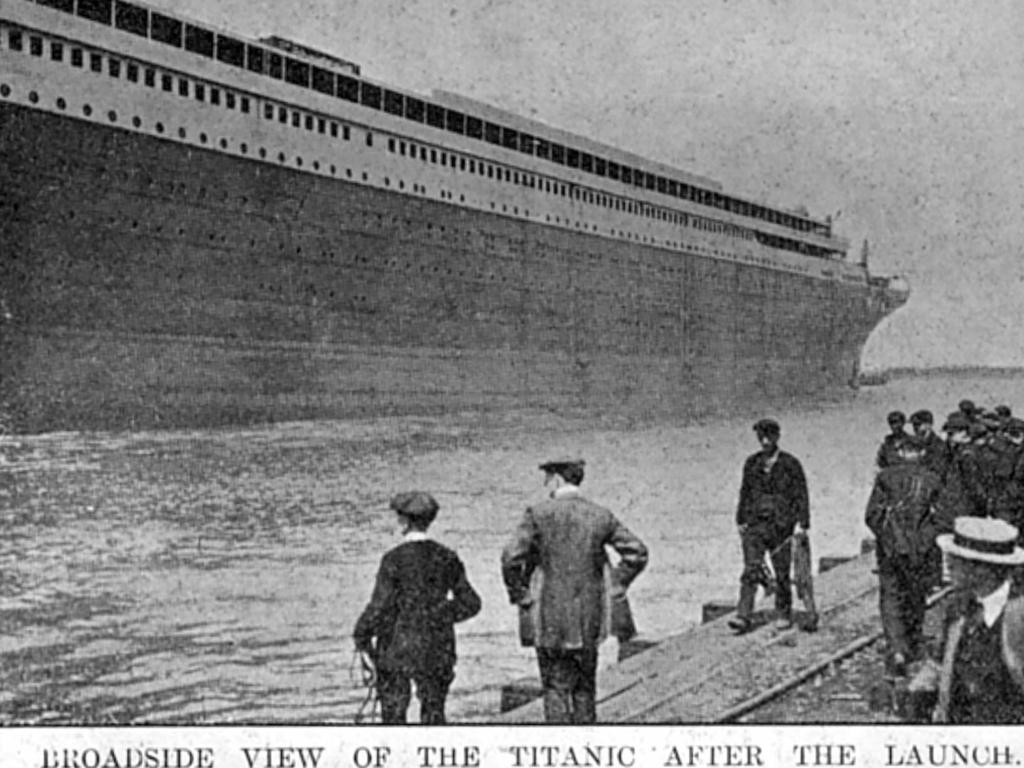
GLOSSARY
- maiden: first, initial, inaugural
- pixel: the smallest unit in a digital display, millions of pixels make up an image or video
- resolution: quality, condition, clarity, clearness of something
- portside: the left side of a boat
- shackle: anchor cable, length of chain attached to anchor
- capstans: machine turns and pulls in a heavy rope or something like an anchor attached to it
- submersible: ship that can submerge and operate underwater, like a submarine
- archaeologists: scientific study of the material remains of past human life and activities
- controversial: causing disagreement, discussion or dispute
- salvage: to recover or save something valuable from damage, destruction, or loss
- integrity: a material or structure’s strength, ability to withstand damage and remain intact
- promenade: upper deck or an area on a deck where ship passengers stroll
- breached: overcome, ruptured, broken
EXTRA READING
Bookings open for Titanic submarine tour
Man who found Titanic is out to find Earhart
Spooky goings-on at night in the museum
QUICK QUIZ
- What is the name of the anchor maker?
- How much did customers pay for a seat on the submersible?
- The hull and structure of the ship is likely to collapse within how many years?
- Approximately how many people were aboard the Titanic when it set off on its maiden voyage?
- How many lifeboats were on the ill-fated ship?
LISTEN TO THIS STORY
CLASSROOM ACTIVITIES
1. Titanic pictures
After reading the Kids News article about these latest high-quality pictures taken of the Titanic wreckage, what questions do you have? Your questions might relate to the wreckage itself, the original ship, the ill-fated voyage or something else you have in your mind.
Write your questions below and discuss with a partner.
–
–
–
–
Time: allow 20 minutes to complete this activity
Curriculum Links: English; History; Personal and Social; Critical and Creative Thinking
2. Extension
What do you think it is that still fascinates people about the Titanic and the wreckage at the bottom of the ocean? People are paying huge money to see it in these sort of missions, and it’s been studied closely for over 100 years.
Time: allow 15 minutes to complete this activity
Curriculum Links: English; History; Critical and Creative Thinking
VCOP ACTIVITY
Imaginative dialogue
Imagine you were there during the event being discussed in the article, or for the interview.
Create a conversation between two characters from the article – you may need or want to include yourself as one of the characters. Don’t forget to try to use facts and details from the article to help make your dialogue as realistic as possible.
Go through your writing and highlight any punctuation you have used in green. Make sure you carefully check the punctuation used for the dialogue and ensure you have opened and closed the speaking in the correct places.

